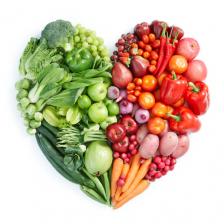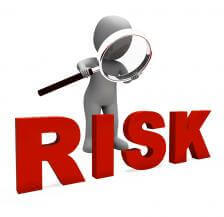Can the Right Diet Prevent Cancer?
There’s no such thing as a diet that prevents cancer because diet is only one of many factors in this complex disease. However, there are ways to reduce your risk. Nutrition Diva has 5 of the most important things you can do. (Surprise: Eating organic isn’t one of them!)

The Centers for Disease Control recently hosted a meeting at which experts from several different fields discussed “Opportunities for Cancer Prevention During Midlife.”
Why midlife? Well, as the authors wrote, “Positive changes during this phase of life have the potential to prevent cancer incidence later in life, making this phase an opportune time for targeted prevention efforts to facilitate healthy aging and increased longevity.” But I think the recommendations outlined in their report make sense at any age.
Sponsor: Squarespace, the all-in-one platform that makes it fast and easy to create your own professional website, e-commerce site, or online portfolio. For a free trial and 10% off, go to squarespace.com/diva and use offer code Diva.
Before I share their tips with you, however, I want to put the role of diet and lifestyle in preventing cancer in perspective. Some people will tell you that following the right diet inoculates you against cancer. As nice as this would be, it’s simply not true. Even worse, we run the risk of making people who have or get cancer feel that they are somehow to blame. Not helpful!
Positive changes during midlife have the potential to prevent cancer incidence later on.
Other people are convinced that pesticides, food additives, and other chemicals are a major cause of cancer. The data simply do not support this. Although I’m all for cleaning up the food supply, workplace, and environment, it’s important to point out that exposure to carcinogenic chemicals (not counting tobacco smoke) is responsible for a very small—and shrinking—percentage of cancer cases.
Life as Multi-Cellular Organism
Although diet and lifestyle choices certaintly contribute to our cancer risks. there are many other factors at work: genetics, environment, and just plain luck of the draw. Even if you do everything “right,” when you have billions of cells dividing all day every day, mistakes will happen. Mistakes do happen all the time, in fact. Usually, our body’s defense systems clean up the mess. Sometimes, they miss it and a rogue cancer cell continues to divide.
As George Thomas wrote in a recent editorial for the New York Times, “For most cancers the only identifiable cause is…the random genetic mutations that are an inevitable part of multicellular life.”
See also: Diet and Breast Cancer – Is There a Link?
So, as you consider the following suggestions, don’t stress about things you cannot control—such as the past. Stress and unproductive worry are definitely not cancer preventive. Focus on the things you can do—and try to do them consistently. Then, try to relax and make the most of life as a multi-cellular organism!
5 Ways to Reduce Your Cancer Risk

See also: How Much Alcohol Is Healthy?
Tip #2: Be More Active. Even modest amounts of physical activity can reduce your risk of cancer, both directly and indirectly. Exercise is beneficial all by itself and also can help to maintain a healthy body weight, which further reduces your risk. Small efforts can really add up here: taking stairs instead of elevators and escalators, parking further from the door, and standing up during meetings and conference calls can all help reduce the amount of time you spend sitting. I installed a free widget on my computer that suggests a different stretch or brief exercise every 30 minutes.
See also: Can Exercise Help Treat Cancer?
Tip #3: Respect Your Circadian Rhythm. We may live in a 24-hour news cycle, but humans are still diurnal mammals. We need regular sleep, preferably in the dark. Among other things, this optimizes the production of melatonin, a hormone that helps inhibit the growth of cancer cells. Try to reduce your exposure to artificial light (especially from electronic devices) in the hours before bedtime and make your bedroom as dark as you can (or sleep with a mask on).
See also: Nutrition Tips for Night Shift Workers and Technology to Help You Sleep
Tip #4: Limit Your Sugar Intake. Contrary to urban legend, sugar doesn’t “feed” cancer nor does avoiding sugar “starve” cancer cells. There is, however, a connection. Diets with a high glycemic load have been linked to increased risk of cancer, and being diabetic also increases your risk. Avoiding sweetened beverages and juice, limiting sweets and refined sugars, and focusing on whole, minimally processed foods will help you keep your blood sugar steady and also support healthy body weight.
See also: Can You Reverse Diabetes with Diet?

See also: Which Vegetables Are Best?
More Resources
Recommendations for Cancer Prevention (American Institute for Cancer Research)
Radiation: Facts, Risks and Realities (Environmental Protection Organization)
Pesticide Residues in Food and Cancer Risk (Handbook of Pesticide Toxicology)
Vegetable image courtesy of Shutterstock






